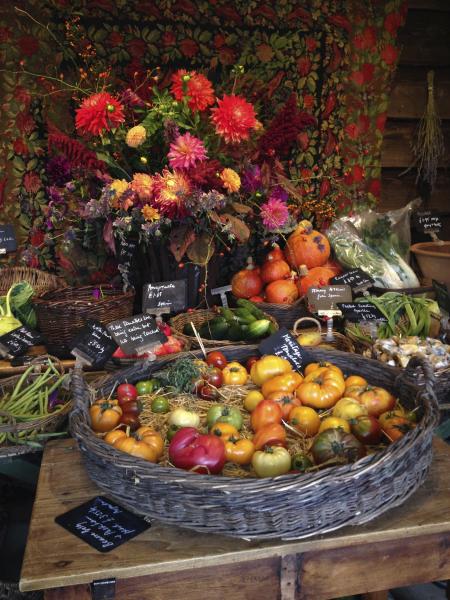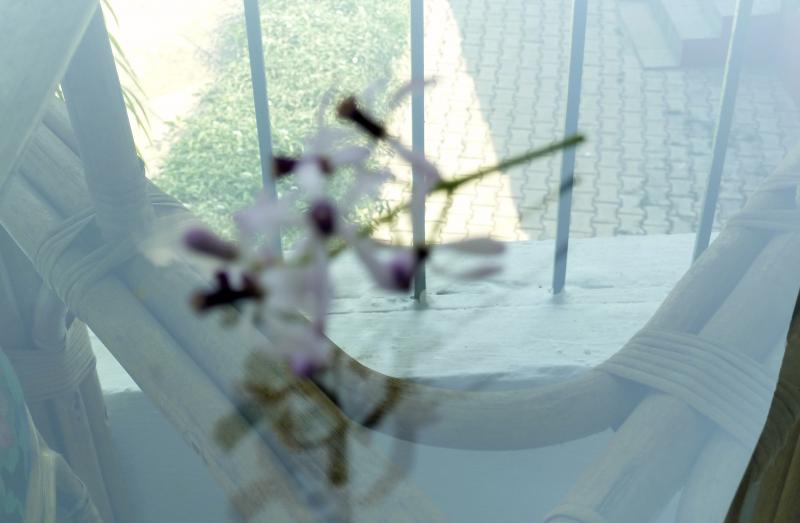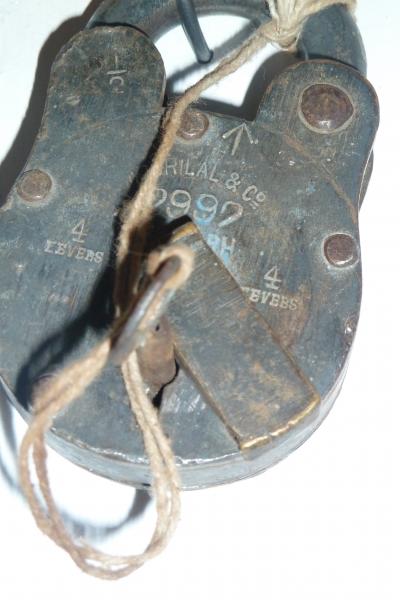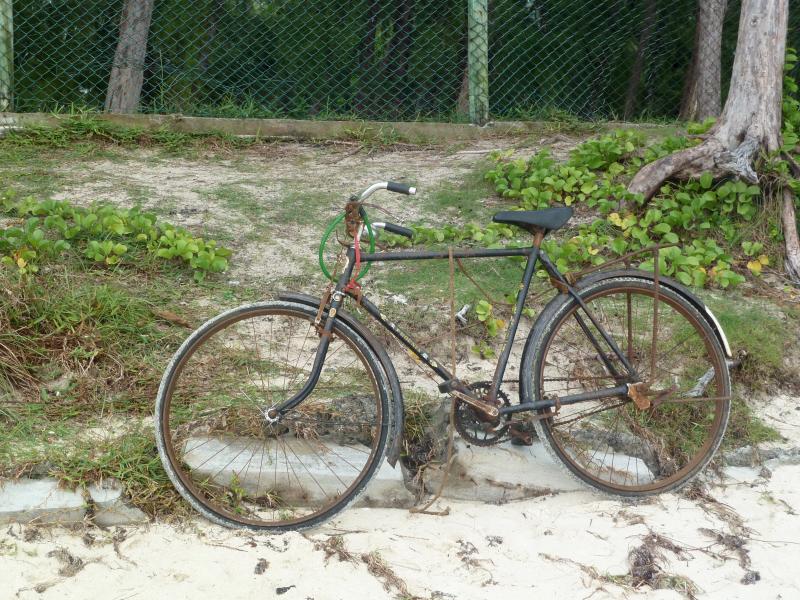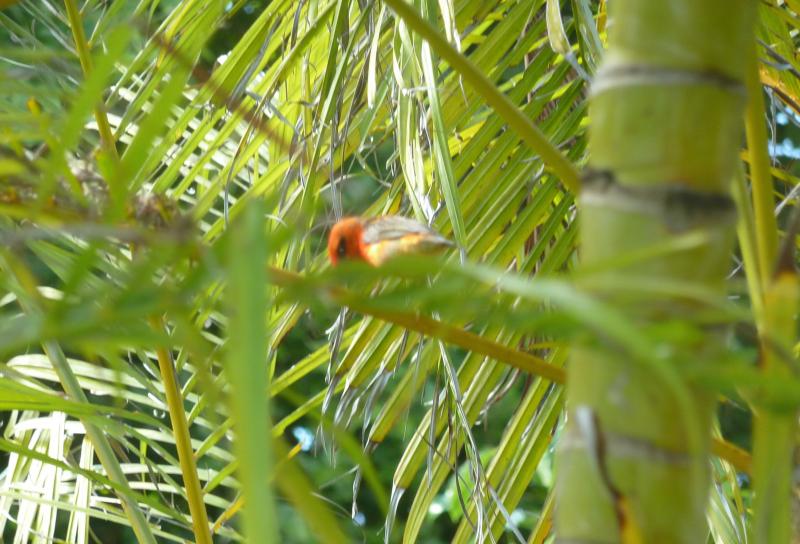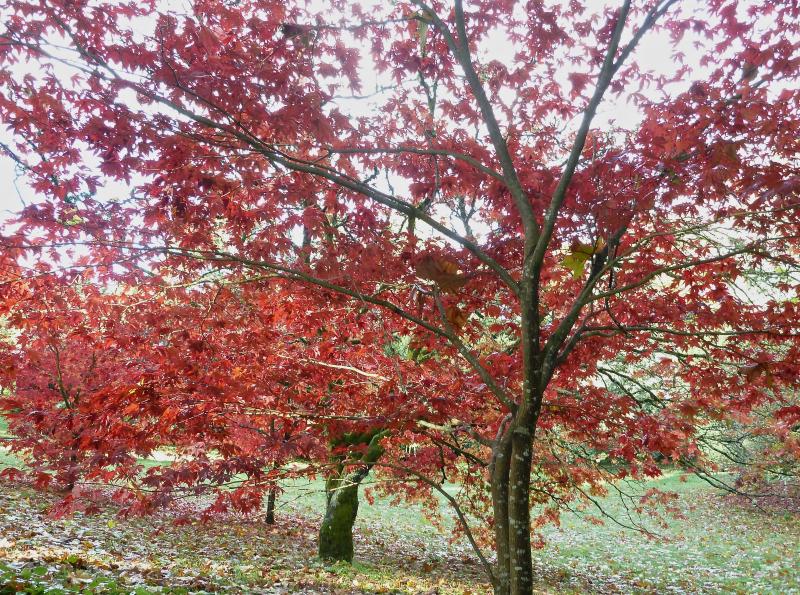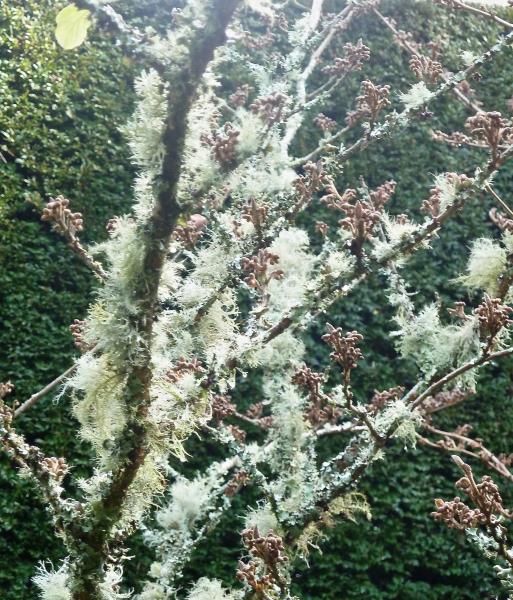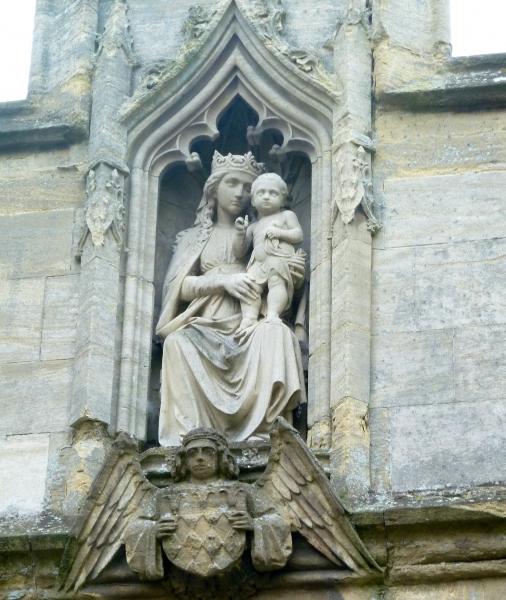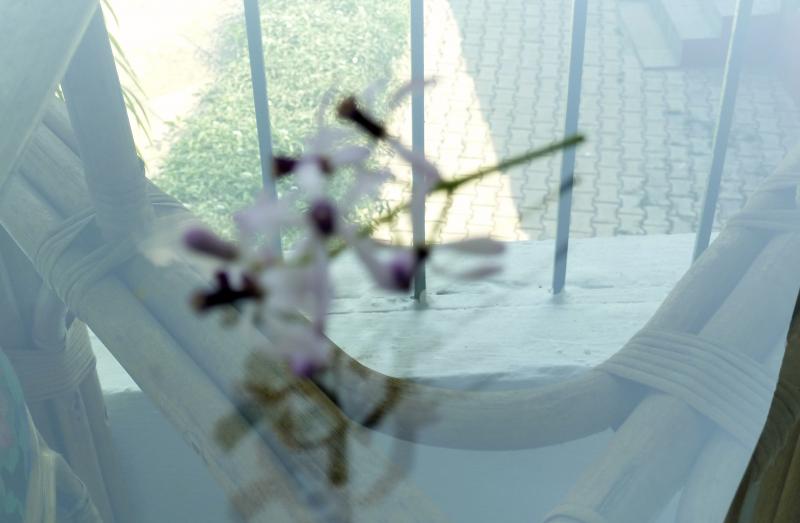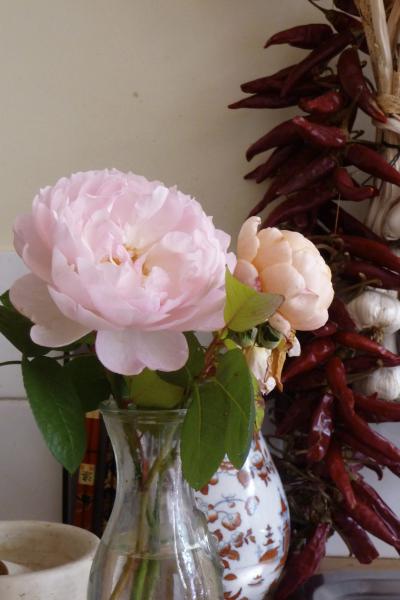 Currently pertinent in regard to colonial history, the Karma Police are working overtime issuing warrants and ASBOs. Unholy chaos in the Middle East (messing about with other peoples’ borders and ideas of nationhood) as well as news reports of rotten baby teeth in Britain, obesity, cancer and diabetes (linked to a sugar laden national diet). There could have only been one signpost leading from colonial expansionism, greed for oil, trade and huge profit: its finger pointing to a massive future nemesis.
Currently pertinent in regard to colonial history, the Karma Police are working overtime issuing warrants and ASBOs. Unholy chaos in the Middle East (messing about with other peoples’ borders and ideas of nationhood) as well as news reports of rotten baby teeth in Britain, obesity, cancer and diabetes (linked to a sugar laden national diet). There could have only been one signpost leading from colonial expansionism, greed for oil, trade and huge profit: its finger pointing to a massive future nemesis.
The explosion of the sugarcane industry in the nineteenth century needed millions of labourers, all conveniently to hand in Africa, China and India. And there for the convenience of the Tates and Lyles were Jamaica, Trinidad, Guyana, Mauritius, Fiji, Reunion and all those tropical faraway islands that were going to provide them with unlimited wealth. What better way to occupy the scrawny peasant of the Gangetic plain, after the various forms of anti-Slavery legislation (the initial one as early as 1807) had put an end to African labour? People trafficking has always been so.

Indian peasants disembarking in Port Louis, Mauritius
Some years ago a young academic from one of these faraway islands broke down sobbing on my sofa as she recounted the story of her great-grandmother who’d been press-ganged into travelling to Fiji, forever separated from her husband and small children. My friend’s ancestor had been cooking the midday dal and roti over her wood-fuelled chula while her farmer husband worked in his fields. A gangmaster walked into her hut, grabbed her from behind gagging and blindfolding her as she clung on to her baby, transporting her to Calcutta to sign her on as an indentured labourer. The ship sailed with its cargo of bewildered men and women- some breastfeeding their babies- where they had to start a new life in a strange country. Not all were press-ganged of course. Some left voluntarily to better themselves and escape from debt. They were Hindus and Muslims from Bihar, U.P and what is now Jharkhand. Most were illiterate and spoke an ancient dialect called Bhojpuri. They carried their customs and religions with them and clung to these because they were the only palpable evidence of their identity and culture. They became exiles— fixated on the moment of repatriation.
A moving explanation by Gaiutra Bahadur, author of Coolie Woman: “Wasn’t the divine hero of the epic closest to their hearts, the Ramayan, ultimately able to stride back to his throne in Ayodhya, after beggar-like years in the woods?” Inevitably some tried to run away, into the forests and over the hills, which their gangmasters had assured were a stone’s throw from their native land. They didn’t know that home was a 3 month sail away over the Indian Ocean. They consoled themselves with their ancient epics and rituals, which are still observed in Mauritius, the first country to use indentured labour in 1834. The exiles recited the ancient verses of exile and its end, the prayerful tale of a triumphant return home and this kept them going, even with the false hope in their hearts. V.S. Naipaul, a second-generation Trinidadian Brahmin, found his way back “home” to India, expressing his repulsion of the motherland in An Area of Darkness.

Sushil, an excellent barista and conscientious householder
Sushil’s wife does puja every morning and they recite a portion of the Ramayan after performing aarti and making an offering. A few days before Shivratri a poster was put up outside the big temple in Flacq, a nearby small town. “Flacq town council wishes everyone a pious Shivratri.”

Jyoti pickles her own starfruit, pineapple and green mango
I ask Jyoti to speak to me in Bhojpuri. Somewhere, in between the rustic sounding cadences that sound intriguingly antique I catch a fragment of Hindi. She breaks into French, but mostly we continue in Hindi. She chops off the top of a huge green coconut and tells me it is very beneficial for the liver, but coconut should be drunk green and very fresh. I drink a long draught while she slices starfruit, mango and tamarind for me t try. It’s a delicious acid chaat. Jyoti is 45 with a girl of 11 and a boy of 7. They have a good schooling in Mauritius and indeed every person I’ve spoken to has elegant speech and manners to match and speaks at least four languages: English, French, Hindi and Creole or Bhojpuri. Everyone I’ve met seems to have been blessed with a unique charm and modesty.

Sunil. Many of the men are called Sunil or Sushil
This tiny pin prick in the Indian ocean is covered in sugarcane. I tried some freshly pressed juice but found it much too sweet. Every inch of the coastline is covered in luxury hotels because tourism- especially winter tourism- is about the only way to make money. The islanders have evolved a way of welcoming outsiders without appearing to be servile or even cynical. They are just pleased to meet you and befriend you and pride themselves on a composite Mauritian identity, even when they proudly inform you that they are Brahmin. I was given many invitations to visit homes and share a meal.
“The population (of Mauritius) consists of…. Hindus, Brahmins, high castes, agriculturists, artisans, Mussulmans, low castes and Christians. It has been frequently suggested that the significant numbers of Brahmins and high-caste persons in the mix testifies to the famine and economic distress convulsing India for many parts of the nineteenth century.”

The Madonna in a banyan tree
The gardening lady, Hindu, offers a handful of bright yellow flowers to the Madonna.

Hanuman on the beach
On the beach I find a carving of what looks like the god Hanuman near a rusty Atlas bike made in India. Lots of older men pedal along lazily with a fishing rod on one shoulder.
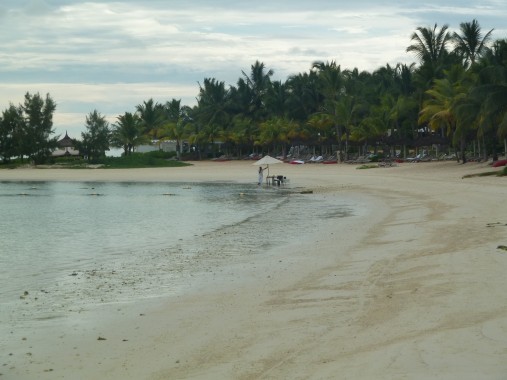

spider lily


The politician most credited for building up this tiny coral reefed island is Sir Seewoosagur Ramgoolam.
He was a frequent visitor to my parents’ home in Nairobi in the mid-sixties and my father explained that originally his name would have been Shivsagar Ramghulam, altered to an approximation by the officer in the recruiting depot of Calcutta or Madras many generations ago.













